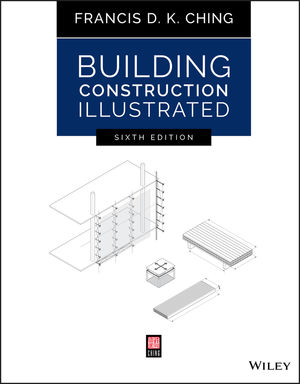
Building permits posted on New York City construction sites are sporting an intelligent look these days as older permits give way to new ones bearing QR codes—those stamp-like squares of dots and dashes. Scanning the QR code with an app on a smartphone yields a building-permit-specific URL that can either be opened on the spot, saved or shared by e-mail for follow-through. And in New York City, where digital buildings-department data are becoming more and more organized and available, the little quick-response, or QR, code instantly unlocks a wealth of very specific project information.
"The idea here is quick and easy, and [it has a] pointed purpose," says Robert LiMandri, New York City Dept. of Buildings commissioner. LiMandri came up with the idea after watching a woman search for product information by scanning QR codes on boxes in a store. "I mentioned it to our developers, and they said, 'Oh yeah, we can do this.' It was not a very hard, technical lift to do, so we did it," he says.
The department launched the project in February 2011. It is now nearing the issuance of its 200,000th building permit with a QR code. However, New York City's building department seems to be the only one in the U.S. that is doing so.
"New York City is in a leadership role again," says Robert C. Wible, an evangelist for modernizing building regulatory practice. Wible is principal of Robert Wible & Associates and the senior project manager at Fiatech, a consortium working to advance the state of the construction industry. Wible predicts, however, that "QR will be catching on in large cities across the US."
Wible further predicts that, because so many departments have lost people and resources in the downturn, the pressure on building departments to streamline operations through technology will intensify as the economy improves.
"Part of what we have been really focused on in the department is trying to figure out simple technical solutions to some of our biggest problems," LiMandri says. "The most important thing is to make it easy for people to find the information they are looking for." After scanning a permit's QR code, users are brought to a mobile version of the department’s buildings information system, which provides permit, complaint and violation history for every building in the city. Users are taken directly to the full project information screen for the project they want to review.
The department issues permits for work involving boilers, concrete, demolition, cranes, electrical, excavations, general construction, plumbing, scaffolding and sidewalk sheds. It also issues after-hours variances and place-of-assembly certificates of operation, all of which are being issued with QR codes now.
By scanning the QR code on the posted documents, users can instantly get a full description of the work and names and contact information about who is performing it, as well as the addresses and telephone numbers of property owners and permit applicants—typically, the licensed architects, engineers or general contractors on the job. QR codes are expected to be on all permits by the end of 2013. The QR code is just the tip of much broader digital initiatives the department has under way to accelerate the use of digital plan review and web-based collaboration in the approvals process. In fall 2011, the department launched what it calls the Development Hub, a virtual plan-review center that accepts digital plans for new buildings and major alterations.
Using videoconferencing tools that include webcams and smart boards, the center allows architects and engineers to submit plans electronically and review them in a virtual environment along with officials from the Dept. of Buildings, the Dept. of Transportation, the Fire Dept., the Dept. of Environmental Protection, the Landmarks Preservation Commission, City Planning and the Dept. of Parks and Recreation. In September, the Dept. of Buildings plans to begin registering architects and engineers to use an online application process to submit plans and apply for permits for alterations and renovations as well. LiMandri says he envisions a dashboard-like interface for the entire city approvals process that would let stakeholders track, step by step, applications through the system and across all departments. This way, he says, if someone tells the owner a particular department is holding up the process, they can go look for themselves and see if it is true.
"There is a revolution coming," LiMandri says. "Owners have to get smart about what they are paying for. The simpler we can make it, the better."
LiMandri says the department is also piloting a project that would put a single document with a QR code on a site, rather than the festoon of permits typically posted on big jobs. "It's not really necessary to have all of this paper anymore, I think," LiMandri says, although he admits it may be a while before smartphones are common enough that paper-based communications are no longer required. However, he adds, "You have to bring your clientele along. Having QR codes on every permit we have now is the best we can do."





